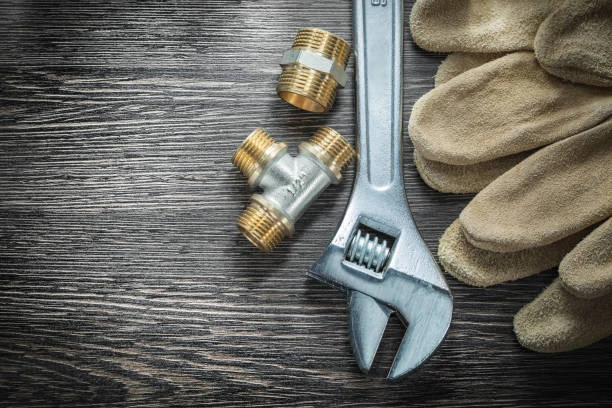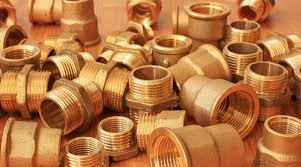When it comes to plumbing systems, ensuring the safety of the water supply is paramount, Brass fittings, commonly used in various plumbing applications, raise questions regarding their safety and suitability for transporting water. This article explores the properties of brass fittings, their safety in water supply systems, and considerations for homeowners and professionals alike.
Understanding Brass Fittings
Brass fittings are components made from an alloy of copper and zinc, often used to connect pipes, manage water flow, and create complex plumbing configurations. Common types of brass fitting include elbows, tees, couplings, and valves. Their durability and resistance to corrosion have made them a popular choice in both residential and commercial plumbing systems.
The Safety of Brass Fittings for Water Supply
1. Corrosion Resistance
One of the primary benefits of brass fittings is their resistance to corrosion. Unlike materials like iron, which can rust when exposed to water, brass is less susceptible to deterioration. This characteristic makes brass fittings a reliable option for transporting water over long periods.
2. Lead Content
A significant concern with brass fitting is their potential lead content. Historically, brass has been manufactured with varying levels of lead, which was used to enhance machinability. However, lead can leach into drinking water, posing health risks.
Lead-Free Options
In response to health concerns, manufacturers now offer lead-free brass fitting, which contain a maximum of 0.25% lead. These fittings comply with safety regulations and standards, making them safer for potable water applications. Always check for certification marks indicating that the fittings are lead-free.
3. Compliance with Standards
Brass fittings are often manufactured to meet specific standards set by regulatory bodies. For example, in the United States, the American National Standards Institute (ANSI) and the American Society for Testing and Materials (ASTM) provide guidelines for the manufacture and use of brass fitting in plumbing systems.
NSF Certification
Look for fittings that are NSF (National Sanitation Foundation) certified. This certification indicates that the fittings have been tested and deemed safe for contact with drinking water, ensuring they do not leach harmful substances.

Advantages of Using Brass Fittings
Brass fitting offer several advantages that contribute to their widespread use in plumbing systems:
1. Durability
Brass is a strong and durable material, capable of withstanding high pressures and temperatures. This durability makes it ideal for various applications, from residential plumbing to industrial systems.
2. Versatility
Brass fittings come in various shapes and sizes, allowing for flexible configurations in plumbing designs. Their versatility makes them suitable for different systems, including hot and cold water lines.
3. Aesthetic Appeal
Brass has a classic, timeless appearance that can enhance the visual appeal of plumbing fixtures. Its warm golden hue can complement a wide range of interior styles, making it a popular choice for exposed fittings and fixtures.
Considerations for Brass fittings Homeowners
1. Regular Inspections
Even with their durability, regular inspections of brass fitting are essential. Look for signs of corrosion, leaks, or wear, especially in older plumbing systems. Early detection can help prevent more significant issues and ensure the continued safety of your water supply.
2. Proper Installation
Ensuring that brass fitting are installed correctly is crucial for their performance and safety. Improper installation can lead to leaks or failures, compromising the plumbing system. It’s often best to hire a qualified plumber for installation to ensure compliance with local codes and standards.
3. Choosing the Right Fittings
When selecting brass fitting, prioritize lead-free options and ensure they are certified for potable water use. Research reputable manufacturers and choose fittings that meet or exceed safety standards.
Alternatives to Brass Fittings
While brass fitting are widely used, there are alternatives available that may also be suitable for plumbing applications:
1. Stainless Steel Fittings
Stainless steel fittings offer excellent corrosion resistance and durability, making them ideal for high-pressure applications. They are also lead-free and do not pose health risks associated with lead leaching.
2. PEX Fittings
Cross-linked polyethylene (PEX) fittings are flexible, lightweight, and resistant to corrosion. PEX is increasingly popular for residential plumbing, especially in retrofitting older systems.
3. PVC Fittings
Polyvinyl chloride (PVC) fittings are primarily used for drainage, waste, and vent applications. They are lightweight, easy to install, and do not corrode, but they are not suitable for hot water lines.
Conclusion Brass fittings
Brass fittings can be safe for water supply when properly manufactured, installed, and maintained. By choosing lead-free options that comply with safety standards, homeowners can confidently use brass fitting in their plumbing systems. Regular inspections and proper installation practices are essential for ensuring the longevity and safety of brass fitting in transporting water.
Frequently Asked Questions (FAQs)
1. Are brass fitting safe for drinking water?
Yes, brass fitting can be safe for drinking water if they are lead-free and certified for potable water use.
2. How can I tell if my brass fitting contain lead?
Check for certification marks indicating lead-free options, or consult the manufacturer’s specifications.
3. What are the advantages of using brass fitting?
Brass fitting are durable, resistant to corrosion, versatile, and aesthetically appealing.
4. Can I use brass fitting for hot water lines?
Yes, brass fitting are suitable for both hot and cold water lines due to their durability and high-temperature resistance.
5. What should I do if I find corrosion on my brass fitting?
If you notice corrosion, it’s important to inspect the fittings further. Consider replacing them if the corrosion is significant or consult a plumber for advice.


















